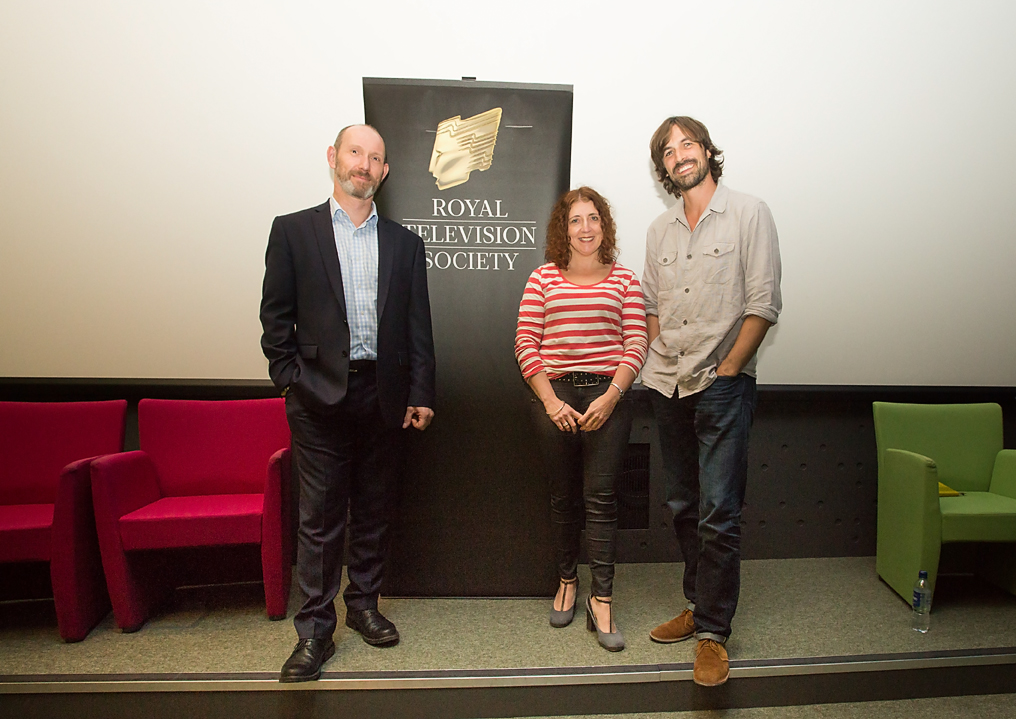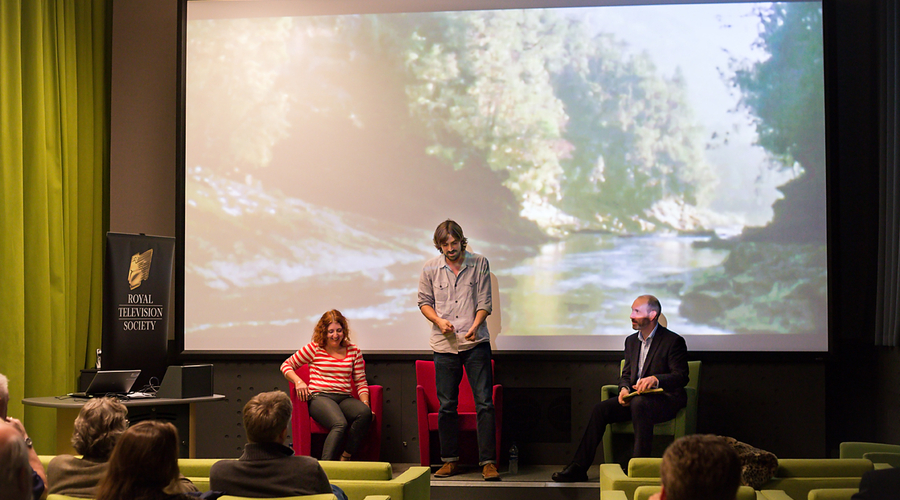RTS Scotland Centre put BBC Scotland’s award-winning arts programming under the spotlight for its October event at Pacific Quay, Glasgow.
Executive producer Pauline Law, whose credits include BBC Two documentary The Marvellous World of Roald Dahl, and Jack Cocker, who was named Television Director of the Year at the RTS Scotland Awards in May this year, talked about their work and craft.
Cocker discussed directing Richard Flanagan: Life after Death, an acclaimed episode of BBC One’s long-running arts strand Imagine about the 2014 Man Booker Prize-winning author. “Beginnings and endings are quite difficult,” said Cocker, explaining that documentaries on writers are challenging because viewers want to hear excerpts of their work.
“The idea was to try and grab people and to hint visually at what was to come later. Richard’s books are all set in Australia and there were elements there that deal with the genocide of aborigines and stories his father told him about being in a concentration camp,” he continued. Flanagan’s father survived the brutal experience of being a prisoner-of-war and building the Burma railway for Japan during the second world war.
Cocker explained that his intention was to lure viewers into the documentary without giving away too much of what was to follow. He gave the credit for realising his aim to Dave Arthur – the best editor I’ve ever worked with – and to presenter Alan Yentob: “Alan pushes you to be more cinematic.” Law added: “He has been a film-maker so he really brings something to the editing suite.”

Law also spoke about how to develop programmes, describing it as a long process filled with long meetings: “There’s a lot of waiting with bated breath.”
Audience members fired off questions at the two-person panel. Subjects included the dynamic between a director, presenter and subject; the art of selecting soundtracks; and the ratio between men and women in the TV industry.
Based on his own experiences, Cocker did not believe that the ratio was awry. He said: “There are a lot of directors on Imagine – I think I’m the only male. I’ve only ever had one male boss in my career.”
Law agreed, saying that in the arts, it isn’t the case that there are “close to zero women who make documentaries”.
She added: “I do think we need to get more women in employment in all walks of life. I find it frustrating that the top level of commissioning is very male dominated.”
“We had some good questions,” said Cocker. “You don’t think that you’ve got anything worth telling anyone, but once somebody asks you a question you start remembering that some of the audience is made up of students who want to learn how to do what you do, and you do have some nuggets to pass on.”

